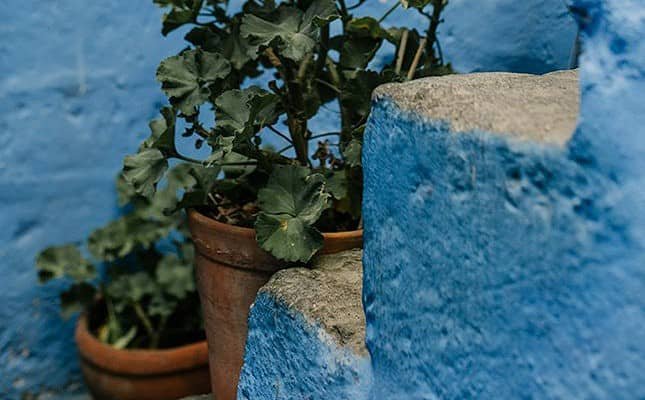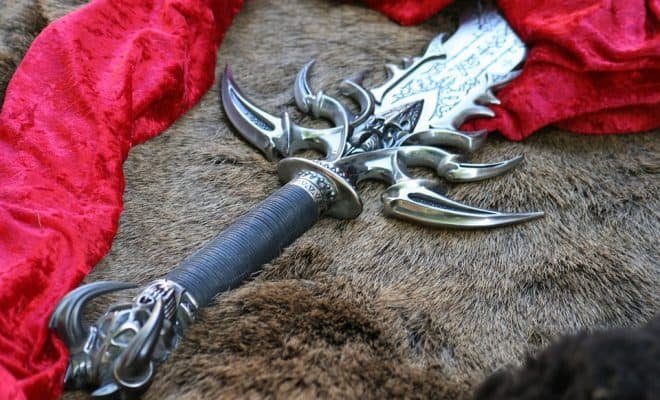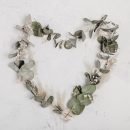Buried Saints

My mother had a faulty sixth sense that flickered like a dying light bulb. She called them “bad feelings.” Often, her premonitions came too late. If we got lost driving, she’d say she had a bad feeling about the road I had taken. If I didn’t get a part in the school play, pass my driver’s test, get a date for the prom, or be accepted to the college’s main campus, she had an inkling but was never sure enough to warn me. It was only after that her supposed premonition was confirmed and justified. When Mama Estella died, although it was expected, Mother mentioned she’d had a bad feeling for days.
We’d cared for Mama Estella all my life. I’d grown up in the house and so had Mother. When Mama Estella received her diagnosis, she had made my mother promise that she’d remain at home. It was a hard promise to fulfill and one that drove my father away years ago when Mama Estella accused him of stealing from her. He relocated to California, repeatedly inviting me to live with him. Last time we spoke, he mentioned the benefit of receiving in-state tuition.
Mama Estella died during my shift at Pie in the Sky Wednesday evening, and we had slept little since. Thursdays were for biology lab, but Mother insisted family emergencies took precedence over school and work. My weeks revolved around school and the pizza place. Comp 101, Biology, Intro to Psych, and French. Random classes about the world where hopefully, I’d chart a future path from.
There wasn’t much to do after Mama Estella was gone. We’d have a small service at the chapel she frequented until she had become bed-bound. It had been a matter of scheduling the time. The afternoon dragged on. All I could think about was how to make up the lab. Our bodies rose in a pattern of remembered rhythms to check on her. I leaned in Mama Estella’s doorway. Her empty bedroom was bright. The afternoon sun illuminated the buttercream walls. Her presence was powerful. A combination of drugstore perfume and bleach hung heavy in the air. Portraits of various saints hung on the walls, casting woeful glances. Crimson rosary beads hung over the portrait of my grandparents. The home health nurse had stayed with us the previous night. Before leaving, she stripped the bed and replaced the comforter. It was a kind, last gesture after accompanying someone in their last moments. The bed bore a festive cranberry-colored pattern that reminded me of tiny curtains being pulled back.
“Right where you’re standing.” I jumped at my mother’s booming voice behind me. My heart pounded. She did this to me frequently, but I was also at fault for getting lost in thought.
“What was?” I stepped aside.
“The specter of your grandfather. Laurel said she saw him moments before Mama passed. I had fallen asleep. But I had a feeling,” she said. “I knew he’d come soon to take his love away with him.”
I crossed my arms and walked over to the bed table where a black and white portrait of my grandparents stood on display. “Did he look like this? How else would she know?”
“It wouldn’t be hard to make the association.”
“What if great-grandpa had come?”
“That makes little sense. Why would Laurel invent such a thing?”
“It was a long night. Plus, Mama Estella saw and heard lots of things with her dementia.”
“Who’s to say she wasn’t wrong?” Mother said, gesturing as if stating the obvious.
I threw up my hands.
“You’re such a cynic,” she said.
“No, but logic typically explains many things.”
*
I awoke during the night to rummaging in Mother’s room, next to mine. By the dim light of her walk-in closet, she hunted through her belongings, which she called an organized mess where everything had its place. There were stacks of ripped, sagging boxes spewing photographs and postmarked letters.
The untrained eye might see ratty, auburn wigs in long braids, but I saw her past lives. The space was her shrine to them. When she was young, she played the guitar in city parks surrounded by friends. Back then, her hair was the length of the wigs flowing out of the packages. The wardrobe was also a museum of vintage clothing crammed together from her younger decades. A plastic garment bag encased her airline attendant’s uniform. Another held her wedding dress. A bin in the back kept my baby clothes and shoes. Floor-length satin and sequined skirts supported by crinoline crowded the small walk-in portion like fancy crossing guards wanting those who entered to stop, look, and listen. In my childhood, her closet served as a time machine, allowing me to be anyone.
Mother had lived all those lives before she was 25. But she didn’t want me to leave. First, Dad had left across the country. He couldn’t stand to live in the same space where his mother-in-law ruled. As if trapped, she kneeled and dug through tattered cardboard boxes. Her curly hair was frizzy from the bed. Her gray roots had a prominent crown edging out the auburn dye.
“What are you searching for?” I asked in a way so as not to scare her. I leaned in the doorway. She emerged the same as if I had emerged from within the clothes to spook her. With a hand on her chest, she took a deep breath.
“Mama,” she gasped. “I heard her as clearly as if she had spoken into my ear.”
“In the closet?”
“In my room, then here.”
“Are you looking for her?” I put a hand on her shoulder. Mama Estella’s passing had just happened. Mother rocked onto her heels as if considering her next move.
“What did she say?”
“She said St. Joseph will help us sell the house. That’s what I’m doing.”
I nodded, as if it all made perfect sense. Stress affects everyone differently. “I’ll help you find him.”
There was a messy organization in her wardrobe. They had once been organized and then, through years of various searches, put everything off kilter. Her rows of cocktail shoes were mostly in line, except for a few that had been kicked askew. The containers of her momentos were stacked, but some flaps extended outward like hands reaching for help—or an invitation.
Together, we sifted through years of souvenirs, photos, legal papers, and certificates. Mother pawed through her belongings. I got distracted reading faded postcards from friends she had never mentioned. After inspecting the location of a postcard, I glanced up and noticed a small wooden jewelry box in the corner. A protective heeled shoe obscured it. Inside the box was a treasure trove of costume jewelry. There were lengthy, brassy chains with large ornate charms. In the tray underneath, however, was a tiny plastic St. Joseph, the patron saint of carpenters and the abode. St. Joseph wore a drab brown frock, with his head cast down and arms extended in a perpetual blessing toward whatever was in front of him.
“We’re in luck,” I said, dangling the little statue.
“Don’t handle him that way.” She snatched it from me, then opened her hand to observe it like a jewel. “This was lucky.”
“There’s no rush to sell, is there?” I asked, but I knew the answers. Mama Estella’s care had forced her to take a reverse mortgage. Since Mama was the sole owner, it was payback time. Our home had never been ours legally.
Mother tilted her head from side to side, considering her answer. “There is some time.”
“Where will you go?”
“Where will I go?” She looked aghast. “We’ll go to my sister’s. Were you thinking of someplace else?”
My aunt had a big family. The smell inside was that of an overcrowded residence. The spring semester ended in a month. I had a few months before I had to enroll for the fall semester. “I thought I might visit Dad and see one of the state schools there.”
She snorted and mouthed soundless words in mockery. “He left us. Remember that.” Her eyes widened, emphasizing every other word.
I nodded and bowed my head to the worn gray carpet. I picked up a black-and-white photograph of unnamed relatives. “Who’s in this picture?”
Mother took it, extended her arm, and squinted at it. “This is Mama and her siblings. All gone now officially.” She shook her head.
In the silence of the early morning, I felt the memories bulging from the boxes. They protected the spirits of the past and filled me with a longing to learn about them.
“I want you to tell me all about them.”
*
The next morning, the home seemed warmer, brighter than in recent days. I found Mother by the front steps, patting the dirt around a pot of red geraniums. “There he is,” she said. “He’s buried upside-down. If we pray to him, he will work to set himself free by helping us sell the house.”
“Well then, let’s hope for the best.” I waited for a response. “I’ve got French class, then the lunch crowd.” I slung my backpack over my damp curly hair.
“You work too much,” she said, brushing loose soil from her hands on her faded jeans.
“I had a feeling you’d say that,” I smiled. She looked as if I were a stranger and she was trying to place me.
“Oh, Freya,” she said.
We both wore dark circles under our eyes. When I slid into the front seat of my car and clicked my seatbelt, I paused. There was an odd silence during a time of day when there was traffic and people. As I turned the key in the ignition, I heard her voice, clear as day, say, “You’ll find your way.”










